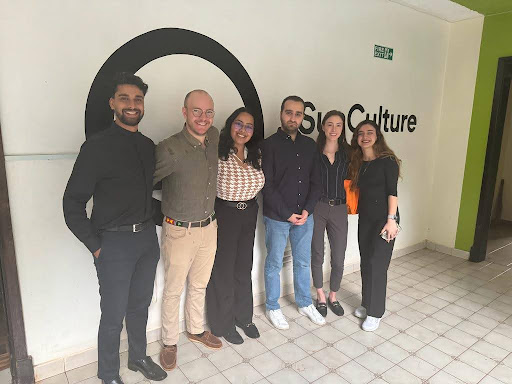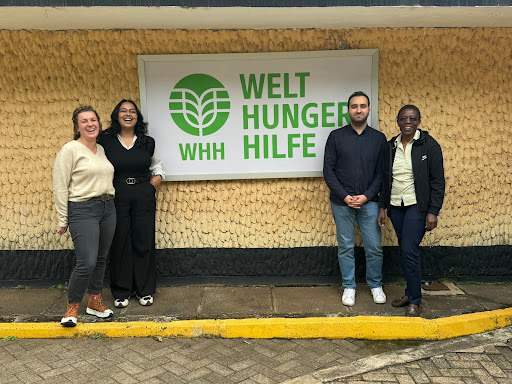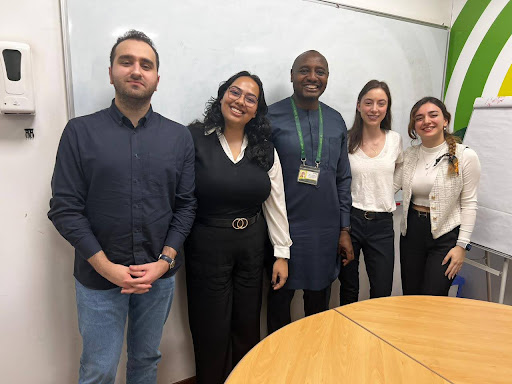TomorrowNow hosted a group of students from Johns Hopkins University School of Advanced International Studies (SAIS) on a research trip about East Africa’s weather & climate value chain.
Nairobi, Kenya – TomorrowNow was proud to host a group of students from Johns Hopkins University School of Advanced International Studies (SAIS) who travelled to Kenya to conduct research on East Africa’s weather & climate value chain.
The goal of the students’ research was to better understand the key stakeholders who make up the market in the weather intelligence sphere, as well as how an AI Advisory Tool can be incorporated into weather advisory.

Specifically, the research objective was to better characterize the market base within the Digital Climate Advisory Service (DCAS) space, the needs of farmers who may benefit from DCAS, as well as the variety of farmer-facing organizations (FFOs) that TomorrowNow is currently in partnership with, or could potentially pursue in the future.
Some of the organizations that were interviewed in the study include: AGRA, Circular Impact, SunCulture, Digital Green, M-Shamba, Sprout, Ignitia and WeltHungerHilfe (WHH).
This understanding was aimed at allowing TomorrowNow to visualize scaling strategies for our capstone programs within Kenya and other African countries, suggesting potential partnerships and methods to enable inclusive climate adaptation across the continent.
The research trip yielded interesting results that provided a clear picture about the current weather innovation market segmentation and risks that define the access to quality weather information from the FFO viewpoint.
In addition, the representatives from the FFO landscape established the consensus that an AI advisory tool can provide the much-needed answer to specific needs of smallholder farmers at the frontlines of climate change.

Empowering FFOs to Reach More Smallholder Farmers
Unlike farmers in developed countries, the vast majority of smallholder farmers and extension agents across Africa lack access to on-demand, accurate, weather-intelligent agronomic advisory.
As a result, smallholder farmers – 95% of whom depend on rain-fed agricultural systems across Africa – cannot take advantage of technologies, innovations and management practices that decades of studies show that they correlate highly with on-farm productivity, profit and local climate adaptation.
At TomorrowNow, we believe the fastest and most effective way to reduce climate vulnerability of smallholders is by equipping them with next generation weather advisory to improve on-farm decision making by empowering the FFOs that already serve them.
By providing FFOs access to a common weather infrastructure layer (including more advanced weather data, co-designed tools and an operational service model for affordability), we believe that FFOs will reach more farmers and significantly increase their value to the farmers they serve.
This will in turn lead to a rapidly expanded FFO reach, significantly increased adoption rates, and ultimately significant boosts to smallholder farmer profit and national GDPs.

